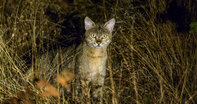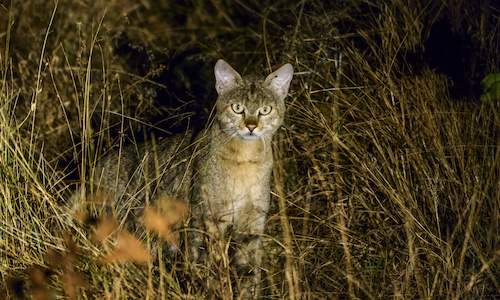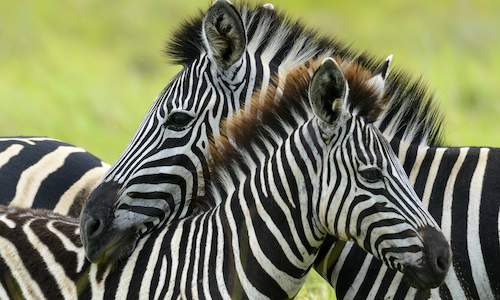
Name
African wild cat [Felis silvestris spp. – a number of sub-species across Africa]Introduction
Six thousand years ago, African wild cats were used by the Egyptians to protect their food granaries from mice. It was here that the first domestic cats were bred. African wild cats are also excellent climbers but prefer to spend most of the time on the ground in the bushveld of South Africa.African wild cat Diet
The African wildcat prefers to feed on small rodents such as mice and rats but will opt for other food sources in times of scarcity. They are known to also eat hare, rabbits, small birds, baby antelopes and arthropods indigenous to South Africa.African wild cat Breeding
The African wild cat’s peak breeding season occurs between July and January in South Africa. The young are born between September and March after a gestation period of 65 days. An average of 3 kittens are born per litter.African wild cat Behaviour
The African wild cat can easily be mistaken for the everyday domestic cat, with only its ears and legs being longer in length. As it is a close relative to the domestic cat, interbreeding is possible. Not much study has gone into the behaviour of the African wild cat, but they are known to be solitary creatures and gather only during breeding season. In South Africa, they are territorial in the wild.Where they are found
Genetically pure lines of the African wild cat can only be found in isolated areas within South Africa. These cats usually interbreed with domestic cats where there are human settlements.Vital Statistics
Weight (Female): 2,6 - 5,5 kgWeight (Male): 3,8 - 6,4 kg
Length (Female): 90 cm
Length (Male): 90 cm
Gestation Period: 2 months
No of Young: 2 - 5
Order: Carnivora
Family: Felidae
 The African Wild Cat (Felis silvestris lybica) is an indigenous species of Africa and an ancestor of the domestic cat. They look like domest...
The African Wild Cat (Felis silvestris lybica) is an indigenous species of Africa and an ancestor of the domestic cat. They look like domest... Learning about the mammals of South Africa is now so much easier for all South Africans - SouthAfrica.co.za is an excellent source of inform...
Learning about the mammals of South Africa is now so much easier for all South Africans - SouthAfrica.co.za is an excellent source of inform...